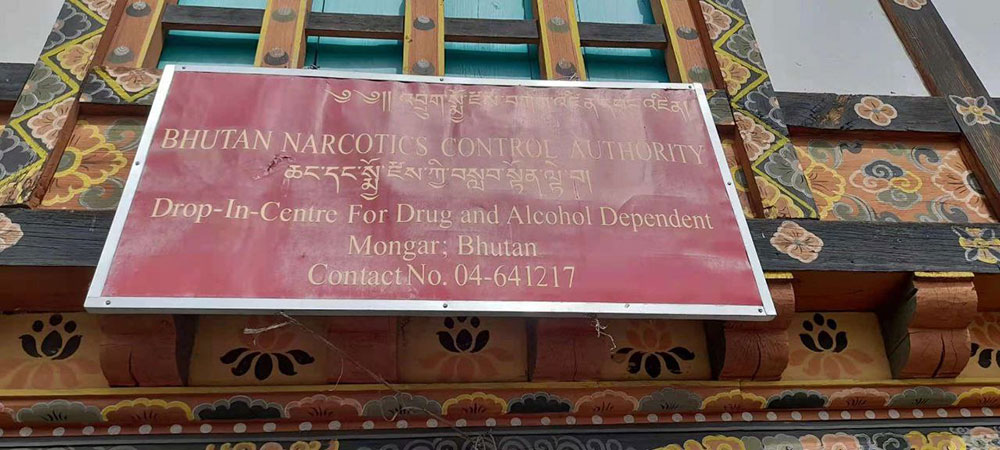Tshering Namgyal | Mongar
A central school in Trashiyangtse expelled four students recently after they were caught abusing substances.
The school administration allegedly expelled the students when they were undergoing counselling sessions with the school counsellor.
While two students stayed back in their village, two are currently undergoing rehabilitation at the Compulsory Drug Treatment Centre (CDTC) under the Bhutan Narcotic Control Authority, through a drop-in-centre (DIC) in Mongar. Their parents made inquiries to the DIC officials about the service.
The DIC officials are now planning to help students find admission in other schools to continue their studies when they complete rehabilitation.
Parents of the students said they never knew their children were abusing substances until the school called them to take them away.
A parent, Ngawang Tashi, alleged the school authorities never informed them of the situation beforehand. “When I asked my son, he told me their warden had found some marijuana leaves under their pillow and made it into an issue, although they hadn’t used them.”
He said they requested that the school authorities conduct a urine test to confirm whether substances had been used, but the school denied their request. “Only three months are left for the academic session to complete and the whole year has been wasted because of a trivial issue.”
Ngawang Tashi said his son tested negative in the urine test at the rehab centre and hopes a second chance will be given to him to continue schooling after the three-month rehabilitation period.
However, the school authorities stated that all four students were repeat offenders, and the school had to expel them with transfer certificates so that they could seek admission in other schools. “With no other option, we had to follow the school policy and send them away,” the school principal said.
Officials from the DIC said there could be similar cases in other schools, but that they go unreported. “It’s happening because not many school teachers and parents are aware of the treatment assessment panel (TAP) services set up in the DICs, and referral for counselling if the students have been found to be involved in substance abuse, unlike the old practice of expelling or suspending them directly.
According to a peer counsellor, Tshewang Jemo, BNCA introduced the TAP service at the DICs in 2015. “The panel at the Mongar DIC is composed of a dzongkhag legal officer, a counsellor from the DIC, police, and a health official.”
She said the panel assesses the risk level of the offenders who come to the DICs either through apprehension by the police or being referred by the school, including dropouts and in-service with substance abuse. “Low to moderate risk level offenders are sent back to their respective schools to attend a two-month counselling session with the school counsellors for the first offence.”
Tshewang Jemo said to ensure the students’ regular classes are not hampered, the counselling sessions are conducted twice a week. “If the offenders repeat the offense before the first one is cleared, the punishment is extended for a second offense with a longer counselling period. Those found to be high-risk during assessment will be referred for rehabilitation.”
In 2021, more than 40 cases reached the DIC, of which more than 30 were students, while the rest were dropouts and in-service. The DIC in Mongar referred about eight clients for rehabilitation.
Tshewang Jemo said the TAP service helps students by providing a second chance to change their habits and continue their education.
However, she said many teachers and students are not aware of the service and more advocacy is needed, for which DIC officials are planning to conduct community-based advocacy programmes on TAP and referral in the region soon.
She said besides Mongar, the DIC could not cover much in terms of advocacy in other dzongkhags under its jurisdiction, like Trashigang, Trashiyangtse, Lhuentse, and Bumthang, due to pandemic.
She said advocacy programmes should be conducted in schools.
Edited by Tashi Dema


